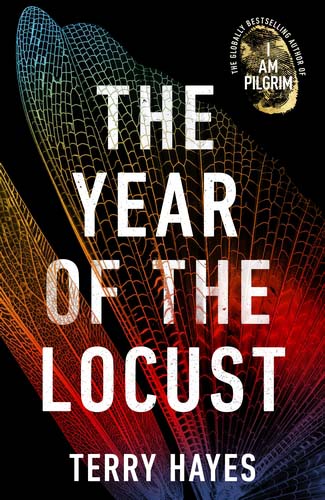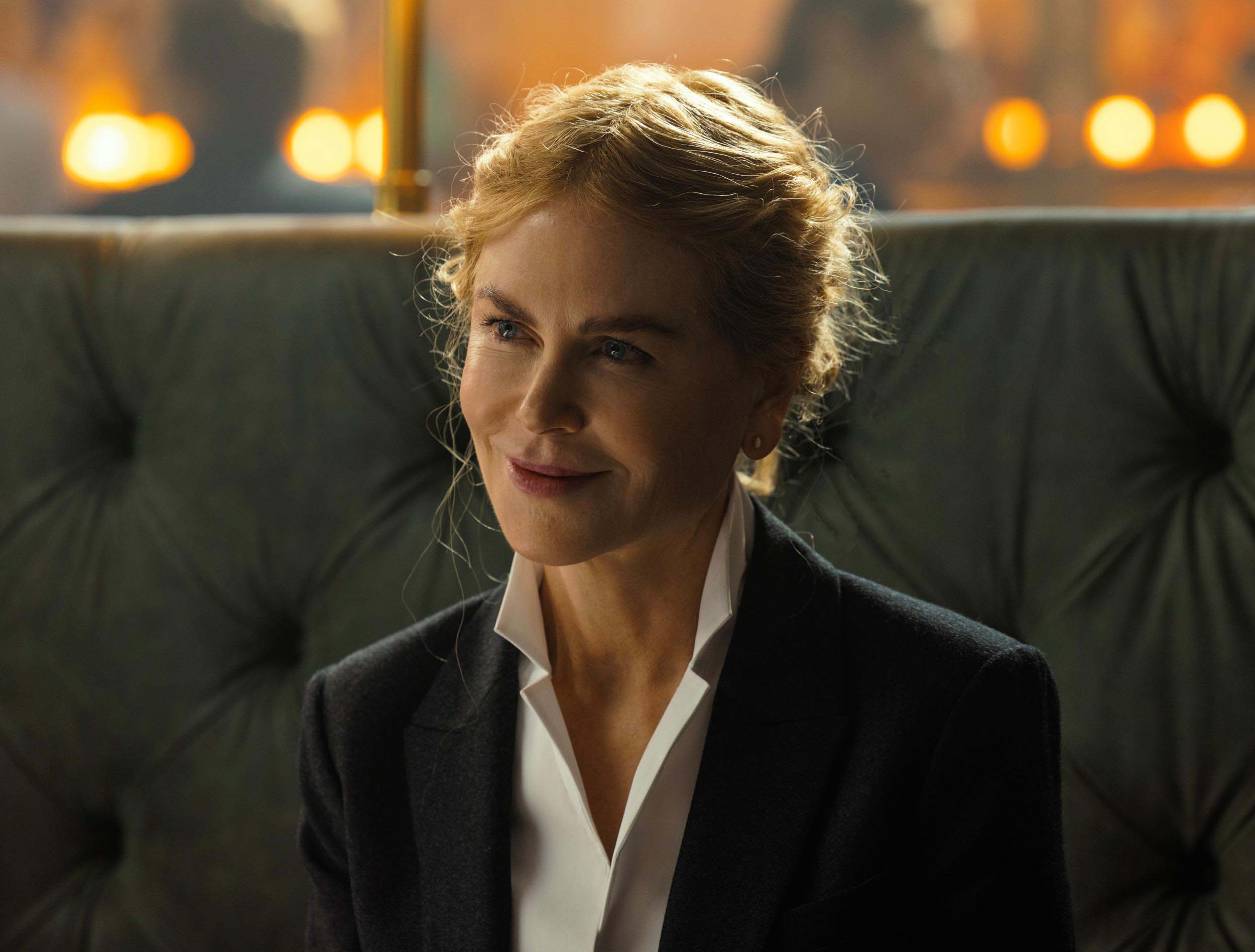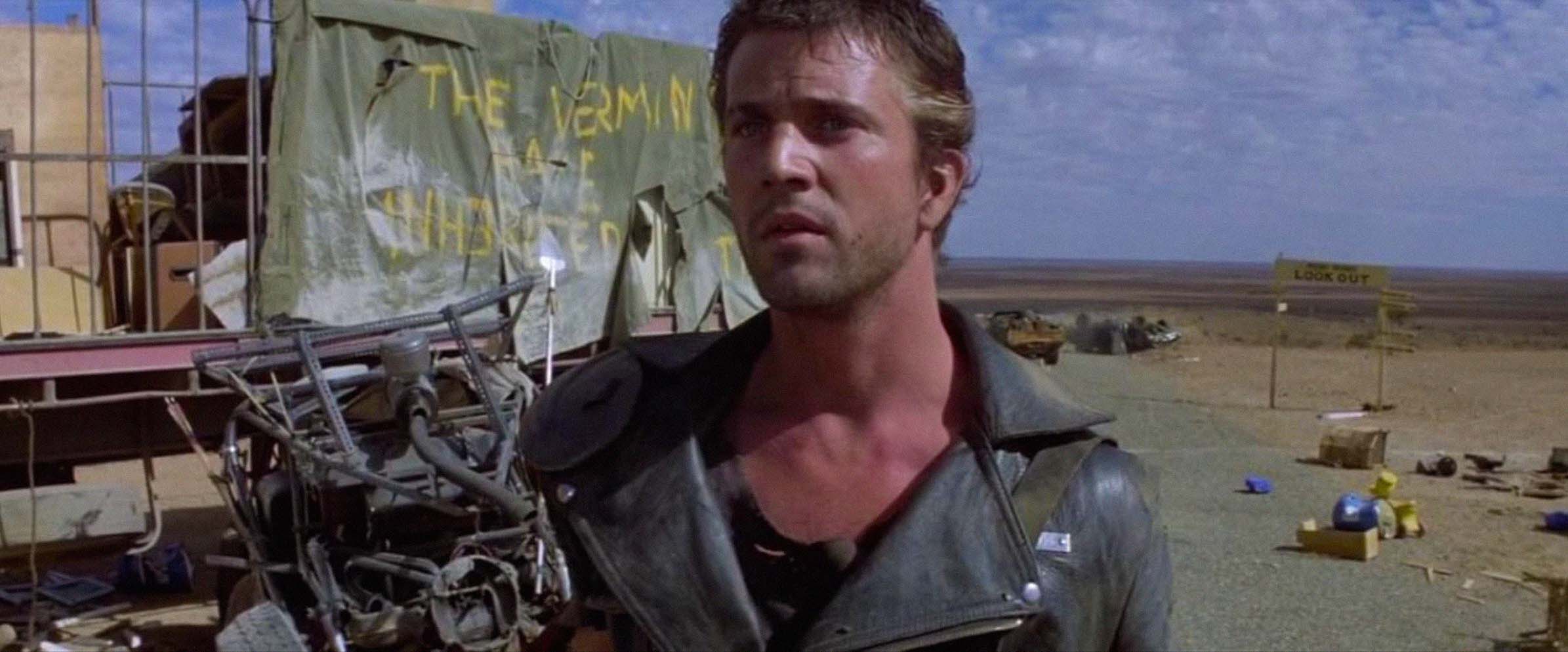- Culture
- 11 Dec 23
Terry Hayes: "If you write long and often enough, you're gonna hit gold"

Acclaimed author Terry Hayes discusses his gripping new thriller The Year Of The Locust, Nicole Kidman, Mel Gibson and co-writing the Mad Max movies.
In the latest thriller from Australian author Terry Hayes, The Year Of The Locust, CIA operative Kane travels to the Middle East to extract a man with information vital to the safety of the west, only to encounter an adversary hellbent on unleashing apocalyptic chaos. It’s a gripping read, filled with the kind of twists and turns familiar from shows like 24 and Homeland.
It's a funny irony of the CIA that, despite its intention to be one of the world’s most secretive organisations, it’s also one of the most written about.
”It’s a bureaucratic organisation and it has all the faults of one,” suggests the friendly Hayes in his strong Aussie accent, in Dublin’s Brooks Hotel. “It also has one real complication and that’s the political element. Some of the people who’ve been appointed director have been appointed not for competence, but for other political reasons. So it’s a very complicated world.
”When I was a young journalist, the newspaper I worked for in Australia came up with the brilliant idea that I should go to New York and be a foreign correspondent. It was a wonderful opportunity for a young man, but the best thing about it was they gave me an apartment opposite the Dakota, where John Lennon lived.
”I used to see him going in and out, so that was great. Even better, they gave me a company credit card. No wonder the place went broke! Anyway, the editor of one of the group’s papers was very smart, and he asked me to take a look at the CIA’s involvement in Australia, and also what they’d got up to during the Vietnam war - Australia had been co-opted into it by the Americans.”

It was the start of an enduring fascination.
”I got very interested in the activities of the CIA on a more worldwide basis,” continues Hayes. “At that time, they were spying on everybody, including Americans, which was illegal. I went to Washington and met an incredibly courageous man named Victor Marchietti, who had been executive assistant to the director of the CIA, so he knew where most of the bodies were buried. He’d resigned and written a book called The CIA And The Cult Of Intelligence.
“He was a very brave man - I mean, this was when the CIA was backing Pinochet down in Chile, doing dreadful things. He was morally offended by that and thought the CIA had so lost sight of its vision that it was out of control. He told me, ‘I’ll never work again, because wherever I go, they go there first and warn people.’
”He was living in a suburban street in Maryland, a nice unassuming, highly intelligent man. It was in some ways heartbreaking. I also started interviewing Seymour Hersh and different people who knew a lot about the American intelligence services. I had that sort of background and I’ve always been interested in what they get up to. Because it’s a morally very difficult area.”
Certainly, it’s remarkable that there have been no major terrorist attacks in the US since 9/11. One would imagine in the aftermath, there was a decree from the American security services that no such attack would ever occur on US soil again, whatever it took.
”There were many people in very influential positions who thought that,” notes Hayes. “But one of the interesting things about America is that it has such a widely divergent range of opinions. There were people saying, we have to look to the future. We don’t want to open the door on extraordinary measures, which was basically torture, and lose the moral high ground. We’re seeing exactly that in Gaza right now.
”There’s an outrageous event, which is followed by an equally devastating series of events. It’s very hard to judge who’s going to end up with the moral high ground there, and that becomes important.”
While we may have escaped a terrorist attack on the scale of 9/11, Hayes counsels caution.
“I think the real threat will come when a group of disparate entities form a molecule,” he suggests. “At the moment, they are floating around in a sea of hate and anger, fuelled by what is happening in Gaza. When those individual atoms coalesce into a molecule, we got ourselves a real problem. I think a lot of intelligence agencies have been very fortunate they’ve managed to find the atoms before they’ve coalesced. And boy, we wanna hope they stay fortunate.”
MAD MAX
Now 72, after starting out as a journalist in Australia, Hayes went on to become a successful Hollywood screenwriter, having scripted Mad Max 2 (also known as The Road Warrior) and its sequel Mad Max: Beyond Thunderdome, at the invitation of director George Miller. He has also remained a friend of another fellow Aussie, superstar actress Nicole Kidman, for whom he scripted the thriller Dead Calm.
Indeed, Hayes remembers once attending a lavish party at the LA home of Kidman and her then-husband, Tom Cruise, which required attendees to ride up the driveway on a camel (Hayes and his wife got stuck in the camel traffic jam behind Jim Carrey, who was in full Lawrence Of Arabia mode). Feeling that the LA social scene “wasn’t really me”, he and his family relocated to Ireland, first to Thomastown and later Kinsale, before eventually pitching up in Switzerland, where they now live.
When we’re discussing Kidman, I mention that she’d recently featured in probably the best TV scene I’d seen all year, in Taylor Sheridan’s thriller series Special Ops: Lioness. Playing an intelligence operative about to embark on a dangerous mission to the Middle East, Kidman’s character has a heart to heart with her investment banker husband (Martin Donovan). Though the demands of her job have more or less killed the relationship, she still values his take on her work.

Soliciting his views on her latest mission, her husband tells her that for all the merited anxiety about climate change, the current precarious state of global geopolitics means some unspeakable catastrophe - either a biological or chemical weapon attack, or a nuclear exchange - should be a much more pressing concern. It’s an exchange that makes your blood run cold.
“She’s a great actress,” says Hayes of his friend. “It’s true. If terrorists had cruise missiles, helicopter gunships and aircraft carriers, it’d be one problem. But they don’t, so they use whatever weapon is available, whether that’s guys crossing a wall by hang-glider, specially adapted drones, biological weapons or anything else they can lay their hands on.
“The problem with intelligence agencies, from my observation, is that they’re hidebound by bureaucracy and rely on the past, whereas terrorists are always looking to the future. There is not a great deal of imagination let loose at Langley, Mossad, MI6 or the Saudi intelligence agencies. They do not traffic in imagination. When you’ve got no resources and you’re a terrorist, the only thing you’ve got is imagination.
”Prior to 9/11, the CIA had plenty of warning, but they didn’t have the imagination to think how it might be done.”
Going back to The Road Warrior, released in 1981, Hayes came onboard after Miller - having read a piece by Pauline Kael arguing journalists made the best screenwriters - sought him out at the suggestion of a mutual friend. In teasing out the post-apocalyptic storyline, Hayes - inspired by a controversial incident on Australian radio, in which his show announced a Middle East oil crisis had precipitated World War 3 - suggested a scenario where fuel shortages had led to a devastating war.
Thus, Max and the various road gangs he battles would be feuding over oil. The Road Warrior’s unique look and kinetic action sequences have led it to be considered one of the greatest action movies ever made, launching Hayes, Miller and star Mel Gibson towards glittering careers.
”It’s haunted me for years, in a good way,” says Hayes. “You’ll know this better than me, but there are movies and books that stick to your bones. I actually think my previous novel, I Am Pilgrim, is one of the books people have read, and with some readers - not everybody - it sticks to their bones. It’s true of Road Warrior as well, especially with filmmakers.
”I didn’t realise it then, but I was fortunate to be involved in something that became a popular cult movie. I learned a great deal about storytelling. I’ve told George this, but I remember going into the writing thinking, ‘This isn’t going to be that difficult, because George knows what he’s doing. I’ll contribute what I can and I’ll learn a lot.’ I remember the day we were sitting there and the scales fell from my eyes.
”I thought, ‘George, you don’t know anymore than I do!’ I said to him, ‘You’re as lost as I am, aren’t you?’ He said, ‘Yeah – that’s why you’re here!’ I panicked, I thought, ‘This is it?’”
CRACKING THE STORY
Were you lost in the story?
”We didn’t know how to tell a story!” says Terry. “George will admit this, but Mad Max had been derived from other movies. Because he had a very wide knowledge of movies, and a good sense of what did and didn’t work, he put those things into the first movie. Now we’re doing the sequel and we’re trying to get more out there. We couldn’t just borrow from other stuff. We didn’t really know what made things dramatic.
”George Lucas had given an interview to Time, when Time was really something. I read it and he mentioned a book called The Hero With A Thousand Faces by Joseph Campbell. It’s all about the hero’s journey. So I thought, if George Lucas mentioned it, I’ll read the book. So I did, and George Miller hadn’t read it. I spoke to him at length about it. I said, ‘It’s why Mad Max worked. You hit enough of the motifs of a classic hero journey.’
”I told George he had to read the book. He asked why and I said, ‘Because this is the secret to Road Warrior. We can hit those marks if we’re smart enough.’ I said, ‘You know what? The movie is Shane, or Yojimbo, for our generation.’ So he started reading it.”
Remarkably, Miller arguably topped The Road Warrior with 2015’s sublime Mad Max sequel Fury Road, while Furiosa, with Anya Taylor-Joy, is among the most hotly anticipated movies of next year. But there is no doubt that, in its own right, the post-apocalyptic look and aesthetic of The Road Warrior has had a profound influence on popular culture.
“The late Norma Moriceau was a wonderful woman, incredibly talented,” reflects Terry. “She did costumes for it. You know there’s those watershed moments in your life. I remember on the first day, being driven out to the set by one of the ADs. It was the first scene where the marauders are after Max. We crested a rise and looked across at about a thousand miles of what used to be the inland sea. It’s dead flat and the Australian landscape is fantastic - it speaks deep to your heart.
“We’re looking out on this amazing landscape and there are all the marauders. For a moment, I did not compute that it was our film. I was scared. It was only when I realised, ‘Oh, this is the movie’ that I relaxed.
That’s when I first thought, Gee, this might be good!’”
Of course, latterly Mel Gibson torpedoed his Hollywood career for a protracted period after a series of unsavoury rants. How did Hayes find working with him?
“I always say, I knew Mel before he was famous,” he says. “I’ve known him forever; I knew his first wife. Mel’s a grandfather now, and I was in Broken Hill when his first daughter was just a babe in arms. What most people don’t realise about Mel is that he’s actually a really outstanding comedian. It’s not the jokes, or what he does, but he has the timing of a very good actor. So, he’s very funny.
”Now, of course, there’s been a lot of troubled history with Mel, and we all know about that. I’ve been asked about it endlessly. As far as I’m concerned, I never saw any of that. That might be because he knew that I’m probably a bleeding heart liberal, and he would never want to offend me.

Does he have a temper?
”Well, like all of us, he gets pushed to the limit. In the movies, he deals with a lot of people who don’t know a great deal. I think he gets very short with them. He’d be the first to admit that he’s had his struggles with the darker side of alcohol and other things. He’s deeply devout. I would not wish his life upon anybody in the world.
“To be voted the most attractive man in the world, to be the biggest movie star in the world and have all those temptations thrown at you, and at the same time be extremely devout and a committed father, it was difficult. Personally, having seen a lot of this upfront, I don’t think the human organism is designed to cope with celebrity, I really don’t. I think it’s an almost impossible situation.”
Hayes also scripted the memorable final scene in Thunderdome, when the late great Tina Turner’s character, Aunty Entity, having been bested by Max, has a final confrontation with him in the desert. As if acknowledging the existential absurdity of the situation, Entity poetically says to Max, “Well, ain’t we a pair, raggedy man.”
”Tina was great and a lovely woman,” says Terry. “Just a joy with work with. If you write long and often enough, you’re gonna hit gold. You put a monkey at a typewriter and sooner or later, he’ll write something good, so that’s how I think about it. If I keep working, something good will eventually come out.”
- The Year Of The Locust is out now.
RELATED

- Film And TV
- 15 Oct 25









